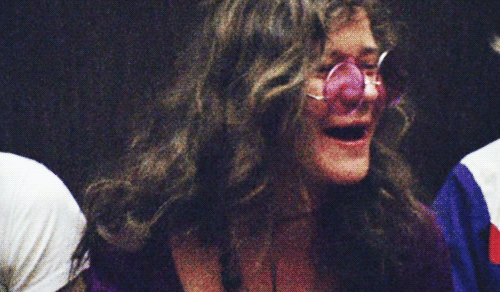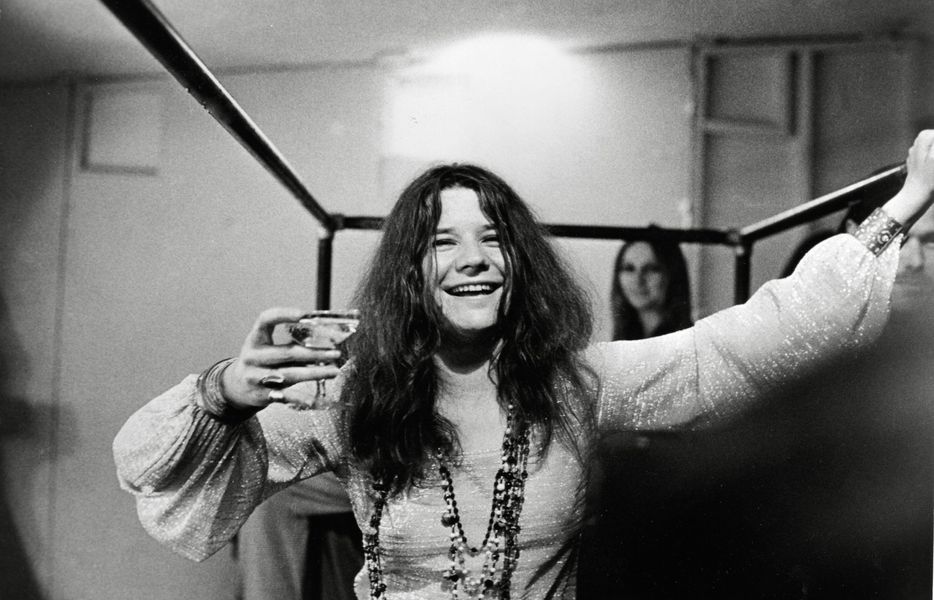

Born in Port Arthur, Texas, in 1943, Joplin fell under the sway of Leadbelly, Bessie Smith and Big Mama Thornton in her teens, and the authenticity of these voices strongly influenced her decision to become a singer. A self-described “misfit” in high school, she suffered virtual ostracism, but dabbled in folk music with her friends and painted. She briefly attended college in Beaumont and Austin but was more drawn to blues legends and beat poetry than her studies; soon she dropped out and, in 1963, headed for San Francisco, eventually finding herself in the notoriously drug-fueled Haight Ashbury neighborhood. She met up with guitarist Jorma Kaukonen (later of the legendary San Francisco rock outfit Jefferson Airplane) and the pair recorded a suite of songs with his wife, Margareta, providing the beat on her typewriter. These tracks – including blues standards like “Trouble in Mind” and “Nobody Knows You When You’re Down and Out” – would later surface as the infamous “Typewriter Tapes” bootleg.
In the years since, Janis Joplin’s recordings and filmed performances have cemented her status as an icon, inspiring countless imitators and musical devotees. In 1988, the Janis Joplin Memorial, featuring a bronze sculpture by artist Douglas Clark, was unveiled in Port Arthur. Myriad hit collections, live anthologies and other repackaged releases have kept her legend alive, as has the one-woman hit show Love, Janis (which Joplin’s sister, Laura, helped create) and Broadway’s critically-acclaimed musical A Night With Janis Joplin. A documentary film Janis: Little Girl Blue directed and written by celebrated, Academy®-nominated documentarian Amy Berg and produced by Academy®-winner Alex Gibney, is an intimate portrait of the iconic but troubled rock ‘n’ roll singer.
- janisjoplin.com [4]

Late on October 4, 1970, Joplin was found dead on the floor of her hotel room.[88] Alcohol was present in the room. Newspapers reported that no drugs or paraphernalia were present.[89][90] According to a 1983 book authored by Joseph DiMona and Los Angeles County coroner Thomas Noguchi, evidence of narcotics was removed from the scene by a friend of Joplin and later put back after the person realized that an autopsy was going to reveal that narcotics were in her system. The book adds that prior to Joplin’s death, Noguchi had investigated other fatal drug overdoses in Los Angeles where friends believed they were doing favors for decedents by removing evidence of narcotics, then they “thought things over” and returned to put back the evidence.[91] Noguchi performed an autopsy on Joplin and determined the cause of death to be a heroin overdose, possibly compounded by alcohol.[22][92] Cooke believed the singer had been given heroin that was much more potent than what she and other L.A. heroin users had received on previous occasions, as was indicated by overdoses of several of her dealer's other customers during the same weekend.[93][94] Her death was ruled accidental.